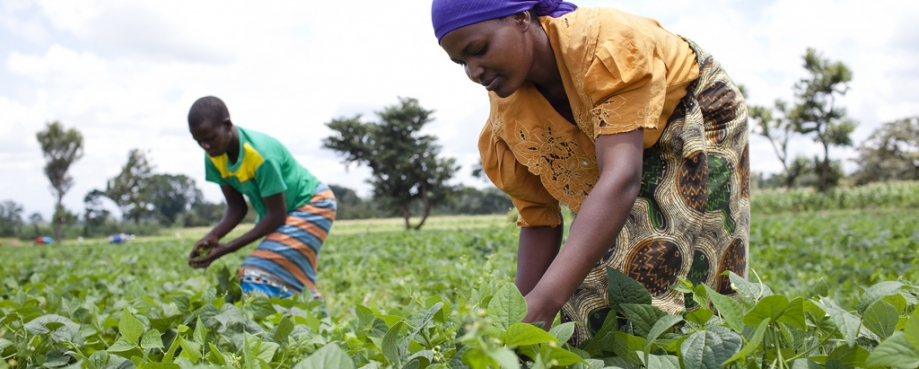
"It gets very hot out in the field, and I often get headaches"
Mary spends eight hours of her day bent double over green bean bushes in temperatures of up to 40°C.
Lying close to the equator, Tanzania is tropical, and for most of the year, temperatures hover around 25-30°C. Even in the country's two rainy seasons, the sun is punishing.
Although the climate makes for ideal growing conditions, for workers out in the fields all day, the unforgiving heat adds to the physical strain of agricultural labouring.
My back hurts a lot from having to bend down all the time to pick the beans, and I get pains in my legs sometimes.
"It gets very hot out in the field, and I often get headaches", says Mary, a young casual worker. "My back hurts a lot from having to bend down all the time to pick the beans, and I get pains in my legs sometimes."
She works on a plot of land rented by a smallholder, who supplies a big Tanzanian horticulture farm, which in turn ships the beans to our supermarkets.
All of the other people working on the plot are casual workers. Like the rest of the workers, Mary gets paid Tsh 3,000 a day - about £1.50, according to how many buckets of beans she fills.
"I have three children and it is very difficult to pay for food for the entire month as well as my children's education. It's very hard to save money too."
All the workers are told to stay away from the farm for a few days while the pesticide spraying is going on. "But sometimes when I come back to work I can feel that the pesticide hasn't quite gone away - I start sneezing and coughing."
But Mary says she has had some training about her rights. "We were told things like we have a right to be paid, what amount we're supposed to get paid, and that we shouldn't be forced to work."
"The manager is good," she says. "Things are not very bad, and not very good - they're just in-between."
Although she has always worked in the field, Mary has other plans for the future. "I would like to be able to earn more money so I can earn enough to send my children to school. Maybe I could start a business."
